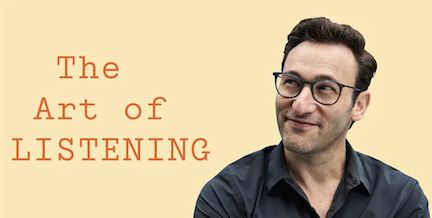Fasten Your Seat Belts
The debates over human sexuality and marital constructs are increasingly and ubiquitously being played out (and have been for some time) over the airwaves and tv screens, on book and magazine covers, in newspaper articles, on billboards, social media platforms, protest placards, and even in classroom curricula.
The debate has even increasingly made its way into product and company advertising.
One such example was from a KLM Airlines ad campagn from 2017. The banner read, "It doesn't matter who you click with," and was accompanied by a series of rainbow seat belt pairings.

But the ad was met with some pretty tough push back as confused viewers noted that two of the three "pairings" would not prove to be realistic or operational.
Once commentor observes:
While more than a few observers pointed at the ad's obvious demonstration of biological realities (eg, which parts fit with which parts), there was a sadder, far more serious, far more important truth being unintentionally revealed by the ad.
The purpose of a seatbelt is to keep the individual safe, secure, and free from harm. Without complimentary latching parts, however, a seatbelt is at once useless and counterproductive to achieving that objective. Ironically, KLM Royal Dutch Airlines' own operational policies forbid pilots to even depart the gate until all passengers are properly restrained by functional belts.
Should a passenger attempt to tie two "female" ends or two "male" ends together as a substitute, they would be reprimanded and, depending on their stubbornness, denied the opportunity to fly.
He goes on to ask:
Are the executives, pilots, and flight attendants at KLM bigots for their intolerant belief that one type of seatbelt arrangement is superior in functionality and safety? Are they discriminators for requiring customers to abide by their narrow-minded view of the "appropriate way" to fasten a belt? Or are they merely expressing a self-evident truth that all of us know, even if we want, for whatever reason, to deny?
God's design was intentional, and His moral guidelines for sexuality were given to us not to deprive us, but to defend us.
"Then the Lord God said, 'It is not good that the man should be alone; I will make him a helper fit for him.' ... Therefore a man shall leave his father and his mother and hold fast to his wife, and they shall become one flesh" (Genesis 2:18, 24, ESV).
"Let marriage be held in honor among all, and let the marriage bed be undefiled, for God will judge the sexually immoral and adulterous" (Hebrews 13:4, ESV).
Marriage Isn't About Happiness. It's About ...
According to the most recent US Census and CDC statistics, marriage rates in the US are holding steady and divorce rates have actually been declining a little in recent years. Yet even with the decline, divorce rates are staggeringly high. As reported by the Modern Family Law group, “As of 2024, the U.S. divorce rate remains between 40% to 50% for first marriages … “
Further key statistics they report are:
- A marriage which ends in divorce lasts an average of only 8 yrs
- The likelihood of divorce increases with subsequent marriages, with around 60-67% of second marriages ending in divorce, and it’s even worse for third marriages which boast a nearly 70% failure rate
- Gray divorce (divorce among adults 50 yrs and older) is on the rise
But on the up side, statistics bear out what we’ve known for a long time about the impact of faith on marriage and family:
“Religion can significantly impact marriage stability. According to Pew Research, individuals who regularly attend religious services are 14% less likely to divorce compared to those who do not. In contrast, those without any religious affiliation experience higher divorce rates, with around 50% of religiously unaffiliated marriages ending in divorce. Additionally, cultural attitudes towards divorce differ widely; for example, certain communities or religious groups may view divorce as a last resort, influencing both the likelihood of divorce and the stigma attached to it.”
Marriage is … HARD! It has never been intended to be entered into absent the presence of God and the practice of faith.

One internet blogger, Elizabeth Johnson, sums it up this way:
“The reason that marriage is hard is because it’s not about happiness; it’s about holiness. We enter marriage looking for the perfect love, but God uses marriage to perfect our love. It’s not about finding the right person; it’s about becoming the right person. It’s not about being served; it’s about serving.
"Let marriage be held in honor among all ..." (Hebrews 13:4, ESV).
"Therefore a man shall leave his father and his mother and hold fast to his wife, and they shall become one flesh" (Genesis 2:24, ESV).
The Great Gift of Listening
Mark Lukach recounted to The Guardian how inadvertently listening to his emotionally ill, suicidal wife, helped her cope with her mental illness:
One afternoon my wife, Giulia, asked me: “Mark, if I kill myself, will you promise me that you will find a new wife so that you can still be happy?” I sighed and leaned back into the chair next to her, unsure of what to say.
Actually, that’s not entirely true. I knew exactly what I wanted to say. I had been saying it for eight months. It’s just that at that moment, I was so tired – tired from work, tired from worry, tired from so many conversations about suicide – that I didn’t have the energy for it again. So I sat in silence.
My wife had been hospitalised eight months previously with a psychotic break. It started with a new job, which made Giulia more stressed than she had ever been, to the point of work paralysis, loss of appetite and inability to sleep. The slide into psychosis was rapid and entirely unexpected. Sure, she had been stressed out before, but nothing like this. Out of desperation, I took her to the emergency room, where they admitted her to the psych ward for 23 days to address her escalating paranoia and delusions.
She came home from the hospital heavily medicated and suicidally depressed. She had little to no energy for anything, and spent much of her time wishing that she could kill herself.
This was terrifying for me. I took a few months off work, so that she wouldn’t be alone all day, a prospect that worried me and her doctors. When she brought up suicide, which was all the time, I panicked. I treated her feelings like a fire, and I was the extinguisher. I had to act quickly, otherwise the warning sparks could grow.
Her first fixation was on overdosing on her medication, so I concocted a plan to hide the pills. I changed the hiding place every few days, and retrieved the medication each night as she waited for me in the bathroom, and then hid them again after she took them. Can’t overdose on pills if you can’t find them.
Then her focus shifted to the Golden Gate Bridge. She wanted to drive there on our scooter and jump off, and she told me about this, over and over again. I couldn’t hide a bridge.
She told me these things when we were walking on the beach together, or at home cooking dinner, but I was so afraid that I responded in full emergency mode, as if we were up on the bridge, Giulia on one side of the railing and me on the other. I couldn’t not see it that way. Someone I loved was in pain, and I needed to do something about it.
“Doing something” meant reminding her of all the reasons it was worth staying alive – how good we had it, how much our families loved us, how much there was to look forward to. It almost became a script, a choreographed dance: she told me she felt suicidal; I tried to overwhelm her feelings with why she shouldn’t feel that way. It never convinced her of anything. But on that afternoon, exhaustion had beaten me down into shutting up. I sat quietly and held her hand.
She looked at me in surprise. Cautiously, she ventured with another thought. “I hate myself so much, and I want to die,” she said, and I said nothing.
“I wish I had never been born,” she said.
More silence.
She continued through her tortured feelings. I listened, and hated what I heard, but I knew that at this moment she was safe. We weren’t actually there on the bridge railing. We were at home, together, and there was no way she could act upon her pain. These were just words.
And then she left me stunned. “Thank you for listening to me,” she said, pulling my hands to her lips to kiss. “It’s so nice to talk to you. I feel a lot better.”
I hadn’t said a word. It dawned on me how little I had been listening to her, without judgment or rush to action. She didn’t need me to tell her that everything was going to be OK. That didn’t help. She needed me to hear her pain. Being heard somehow made it more manageable.

He concluded:
On that afternoon I finally learned that when any of us is in pain, the greatest gift you can give is to listen, patiently and purely.
The best biblical example of this principle comes to us from the Book of Job. As he sat on his ash heap in deepest mourning, his friends approached and visibly saw his depair. His grief was palpable. Then scripture says this:
"Then they sat on the ground with him for seven days and seven nights. No one said a word to him, because they saw how great his suffering was" (Job 2:13, NIV).
Before his friends grew weary of sitting silently, having given into their baser instincts of shame and judgement, they first sat silently. In quiet compassion, they sat silently. In solidarity with his pain, they sat silently.
Those were probably seven of the most comforting, consoling days of Job's entire horrific ordeal.
Rather than inadvertently stumbling upon the gift of listening, as the author above did, let us intentionally purpose to listen first ... patiently and purely!
"My dear brothers and sisters, take note of this: Everyone should be quick to listen, slow to speak and slow to become angry" (James 1:19, NIV).